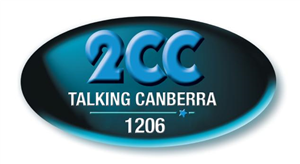A strategy to contribute to super can help your retirement
 Financial Planner Luke Smith joined 2CC Talking Canberra 1206AM in The Money Show which aired on Friday 22 January 2021. This week’s topic: Contributing to superannuation.
Financial Planner Luke Smith joined 2CC Talking Canberra 1206AM in The Money Show which aired on Friday 22 January 2021. This week’s topic: Contributing to superannuation.
Luke takes a look at ways people can contribute to super, the limits that apply to super contributions and how you can actually make a contribution to your account. In this episode, Luke talks about how simple super isn’t really that simple. Super however is worth spending some time on. You might be able to save some tax as well as increase the funds you have available for your retirement.
Key highlights include:
- It’s not surprising things are confusing, the simple super system isn’t so simple.
- Many people have depleted their super in order to get through the Covid Financial Crisis.
- Contributing to super can help grow your retirement nest egg. Starting early and contributing often can make a difference over time.
- Generally there are two ways to make a contribution to super. A concessional contribution (which means you get a tax deduction). A non-concessional contribution (which means you don’t get a tax deduction).
- Contribution caps means that you have a $25,000 limit on the amount you can put into super each year and get a tax deduction.
- If you go over your contributions cap, you might be able to use the carry forward contribution legislation, by using unused contributions from the previous financial year.
- Currently employers are required to contribute 9.5% of you wage to super. Just say that’s worth $15,000. As a $25,000 cap applies, this means you have the opportunity to contribute $10,000 and receive a tax deduction.
- If you’re with PSS and CSS or another Government super scheme, check your fund websites and login to check your concessional cap – these funds operate differently.
- The other kind of contribution you can make is a non-concessional contribution or a non-deductible contribution – this means you put money into super and don’t get a tax deduction.
- There’s also a limit on non-concessional contributions and it’s $100,000 per year, but there is a special opportunity of up to $300,000 under the carry forward rules. This is a great way for pre-retirees to boost their super.
- If you retire with an account based pension balance of up to $1.6 million – the income and earnings from that account are tax free.
- There are opportunities for over 60’s still working to use a pension to fund tax deductible contributions to super.
- If you’re self employed, there’s also strategies from the sale of a business to get money into super you might explore.
- Is there a difference between a super fund and a self managed fund with regard to making super contributions?
- What are the strategies for super contributions you might consider?
- A free appointment offer to talk about your own financial planning goals. Everyone has different goals and financial planning advice can help you achieve them more effectively, especially when you link different strategies.
Listen to the Podcast right now
Audio Player
Also available on Apple Podcasts and Spotify ‘The Strategy Stacker – Luke Talks Money’
Do you need advice on the contributing to super strategy?

Luke as a Financial Planner can help you set up a financial planning strategy to help you achieve your personal financial goals. Simple super isn’t very simple, but the good news is you can make an appointment to speak with Luke about your superannuation and retirement strategy.
Envision 2CC offer: Your first appointment is at our cost. Make an appointment to confidentially discuss your own investment, super or retirement goals. Call Envision Financial Services on 6260 4749. You can also use our contact us form to make an appointment for a confidential discussion about your situation.
Luke will return to talk about financial planning on 2CC next Friday. You can also catch up with The Strategy Stacker – Luke Talks Money podcast. We look forward to your company again.




